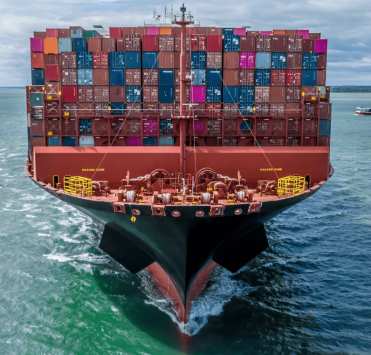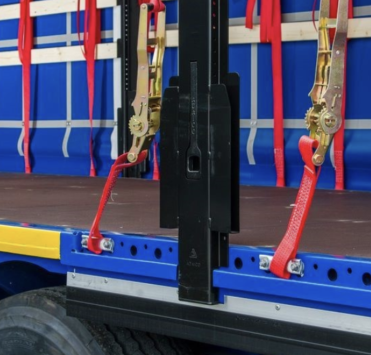Vegetable Oils: Nuances of Transportation by Tank Trucks

The transportation of vegetable oils by road is a complex process that requires strict compliance with sanitary standards and transport conditions. Sunflower oil, soybean oil, rapeseed oil, and palm oil are products sensitive to temperature, light, and oxygen. To ensure the preservation and quality of these products, specialized oil tank trucks and tank containers with thermal insulation and heating systems are used. Below, we outline the key transport requirements, the nuances of bulk and packaged transportation, and standards for tanker cleaning.
Types of Vegetable Oils
The transportation of vegetable oils by road includes such categories as edible and technical oils. Edible oils (sunflower) are in demand in food production, while technical oils are used in the chemical industry, biofuel production, cosmetics, and pharmaceuticals.
- Sunflower oil transportation – a popular product for the Ukrainian and European markets. It is widely used in both the food and technical industries. High demand for sunflower oil in Europe is due to its stability and versatility.
- Soybean oil transportation – in high demand in the feed industry and for biodiesel production. This product is actively used in Asia and the USA, where it is utilized in both food and energy sectors.
- Rapeseed oil transportation – used in food products, as well as for the production of margarines and biofuels. Rapeseed oil is valued for its affordability and efficiency, especially in Europe.
- Palm oil transportation – widely used in food production, cosmetics, and household chemicals. This product is popular due to its heat resistance and long shelf life.
Each type of oil has unique physical properties, such as density, freezing temperature, and volatility. For example, sunflower oil begins to thicken at 0°C, while palm oil solidifies at +15°C. This means that thermal insulation and heating systems in tanker trucks play a critical role during winter, protecting the product from unfavorable conditions.
Specifics of Vegetable Oil Transportation by Road
Vegetable oils require special handling during transportation due to their sensitivity to temperature and light. During bulk or packaged transport, it is essential to consider:
- Temperature control for vegetable oils. All oils have temperature limitations below which they begin to thicken, cloud, or crystallize. For instance, sunflower oil requires thermal-insulated tankers to avoid freezing in cold weather.
- Protection from light and oxygen. Light and oxygen accelerate the oxidation of oils, reducing their quality. To prevent these effects, oils are transported in airtight containers and tankers, shielded from sunlight.
- Sealed containers for oil. Preventing contact with moisture and oxygen is crucial, as this can alter the chemical properties of oils, especially edible ones. Airtight tankers and containers are mandatory for bulk transportation.
Bulk Transportation: Choosing Tankers and Cleaning Requirements
The bulk transportation of vegetable oils is carried out using specialized tankers or tank containers. These containers must meet stringent sanitary standards, as vegetable oils are highly sensitive to transport conditions. Key requirements include:
- Tanker capacity for oil transportation. Tankers with a capacity of 27–40 m³ are commonly used. This size is optimal for large batches and helps minimize losses.
- Thermal-insulated tankers. The use of thermal insulation prevents sharp temperature fluctuations, which is especially important for preserving oil quality in winter.
- In-transit heating system. Palm oil, for example, may solidify at low temperatures, so tankers are equipped with heating systems to maintain product fluidity.
- Certified tankers for edible cargo. Tankers carrying edible oils must have certificates confirming compliance with sanitary requirements and suitability for food-grade transportation.
Tanker Cleaning Requirements for Oils
Before each new shipment, tanks undergo thorough sanitation and cleaning. This is essential to prevent product contamination and maintain oil quality during transport.
Stages of tanker cleaning:
- Wet cleaning. At this stage, dust and residues from the previous cargo are removed, followed by wet washing with specialized cleaning agents.
- Disinfection. Steam disinfection of the tank kills microorganisms that could affect the quality of the oil, particularly for edible products.
- Rinsing cleaning agents. Complete rinsing of cleaning agents is mandatory for edible oils, as even minimal residues can negatively impact the product.
- Cleanliness control of tankers. After cleaning, tanks are inspected for cleanliness and tested for residual odors and traces of previous cargo.
Transportation of Oil in Packaging: Optimal Conditions and Containers
Small batches of vegetable oils are often transported in packaging, which ensures airtightness and ease of transport. Suitable containers for oil transportation include:
- Drums and canisters for vegetable oil. These are suitable for medium volumes of oil and provide protection from mechanical damage and oxygen penetration.
- IBC containers for liquids. These containers are popular for bulk products, as they are airtight and resistant to external influences.
- Flexitanks for bulk products. These flexible containers for tank trucks and tented trucks are used for large volumes of oil. They provide complete airtightness and protection from temperature fluctuations.
Key Rules for Vegetable Oil Transportation
The transportation of vegetable oils requires adherence to certain rules to prevent product spoilage. Maintaining the temperature, airtightness, and proper choice of container helps preserve oil quality:
- Temperature control during oil transportation. For example, sunflower oil thickens at 0°C, so tankers must be insulated and equipped with heating systems.
- Container airtightness. Completely airtight containers protect the oil from contact with oxygen and moisture.
- Loading and unloading oil. Loading and unloading oil requires adherence to precise technological standards. Equipment, including pumps and hoses, must be thoroughly cleaned.
Vehicle Requirements
The vehicle used for oil transportation must:
- Have certificates confirming suitability for food-grade transportation.
- Be equipped with thermal insulation to protect the oil from temperature fluctuations.
- Have a heating system to ensure oil fluidity in cold weather.
Save Pro Solutions specializes in transporting vegetable oils both in bulk and packaged, providing comprehensive services for the delivery of sunflower, soybean, rapeseed, and palm oils. We ensure compliance with all sanitary standards and quality requirements, using specialized tankers with thermal insulation, which guarantees product safety throughout the journey from sender to recipient.









